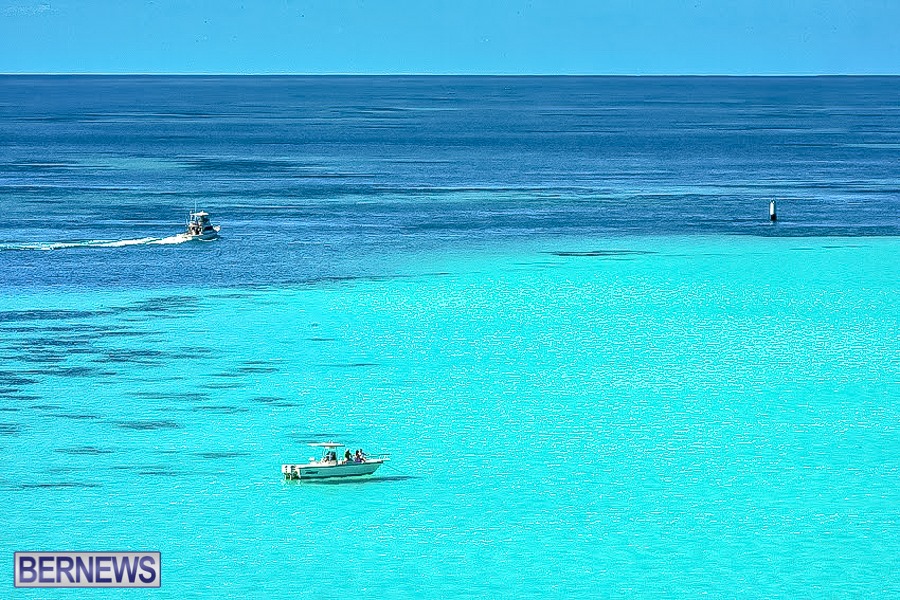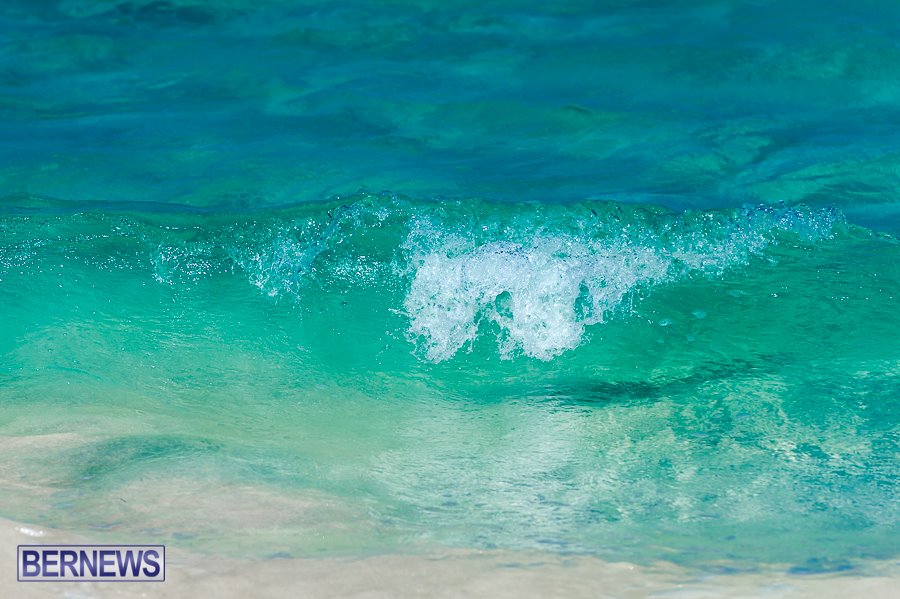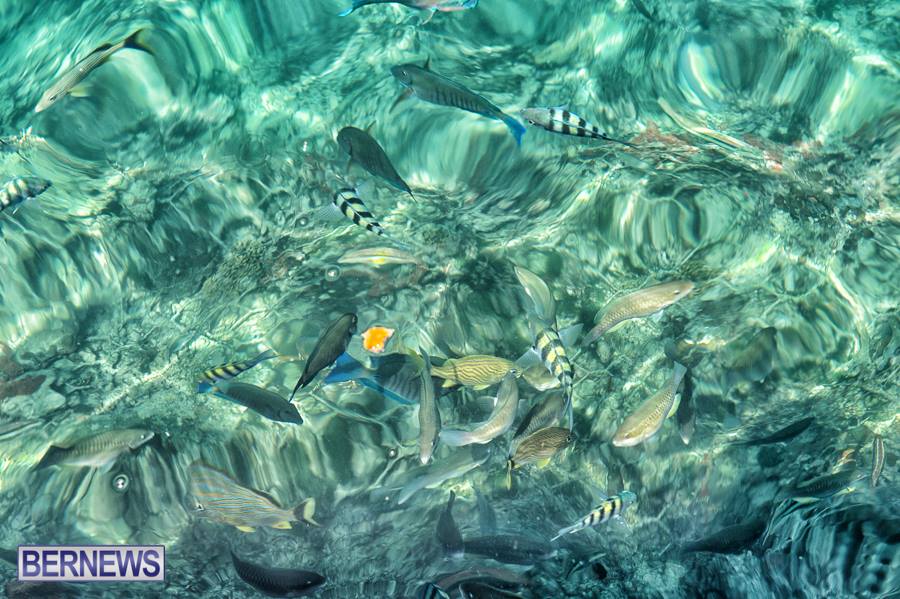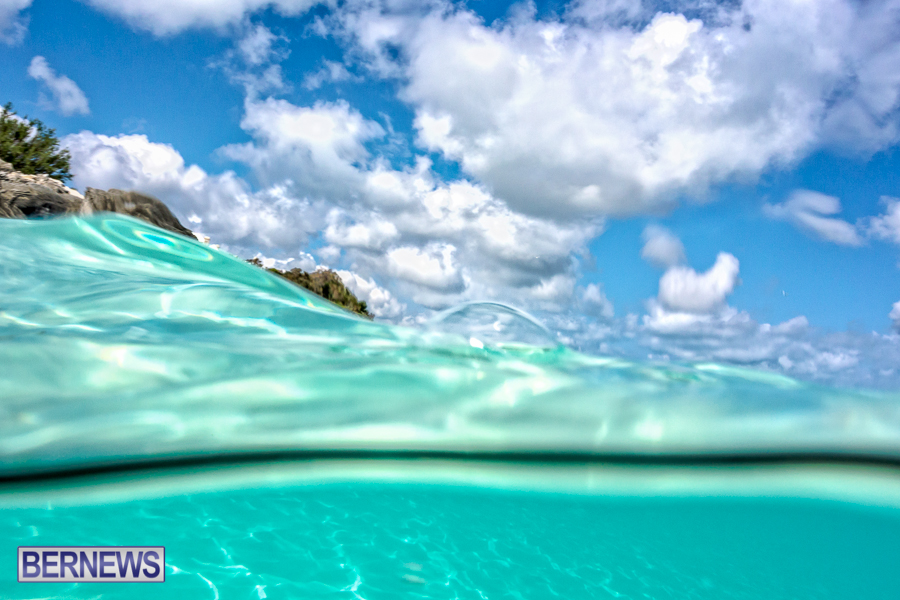Column: Protecting, Managing Bermuda’s Ocean
[Opinion column written by Deputy Premier and Minister of Home Affairs Walter Roban]
Bermuda, my home, is the ocean. Our island, of just 22 square miles, sits in the subtropical mid-Atlantic Ocean, one of the most isolated pieces of land in the world. Like all islanders here, I grew up swimming on our beautiful beaches and fishing off the rocks. Without a healthy ocean, the lives of all Bermudians would be poorer and less secure.
Bermuda’s heritage and culture are, and always have been, deeply entwined with the ocean. Our temperate climate comes from the Gulf Stream, and from our early history as boat-builders, fishers and traders to our modern tourism industry, which sees half a million visitors to our shores each year, all that we do is connected to the blue expanse which surrounds us.
Bermuda’s waters contain the northernmost coral reef system in the world – considered one of the healthiest coral reef systems of the Atlantic – which has so far been spared from the ravaging effects of warming waters affecting so many other coral systems in the global ocean. It is this coral reef that helps protect us from the hurricanes which barrel over the Atlantic every year, and which under climate heating could become stronger and more frequent.
This threat, together with the impacts of overfishing, global shipping and pollution, are all reasons why my government has proudly joined with the Waitt Institute, and Bermuda Institute of Ocean Sciences [BIOS] to sign a Memorandum of Understanding to form the Bermuda Ocean Prosperity Programme.
Through this partnership, Bermuda will create a binding ocean plan to sustainably manage and improve ocean industries like fishing and tourism while at the same time preserving at least 20% of Bermuda’s waters in fully protected areas [no fishing, extraction, or destruction of any kind is allowed]. That is an area of 90,000 square kilometers, or 50,000 square miles.
Last month’s United Nations report which warned of unprecedented rates of extinction of marine life is a wake-up call to us all. Scientists now say protecting at least 30% of the global ocean is essential to maintaining a functioning marine system. Less than 5% of it is currently protected, with just 2.2% strongly protected. We must now do our part.
The process we have begun will be based on expert scientific, legal and socio-economic assessments of the island and all the human uses of the ocean we rely on. Utilizing a concept called marine spatial planning [MSP], new inshore and offshore zones will aim to preserve commercially important fish stocks, migratory routes for marine mammals, and deep-sea ecosystems like seamounts and corals while allowing for responsible development of marine industries.
Marine spatial planning was identified as a key tool for islands around the world in the first-ever Ocean Risk Summit my government hosted almost one year ago.
Sponsored by one of our biggest commercial [re]insurers, AXA XL, whose business is to assess risks to societies, this ground-breaking summit saw scientists, high level representatives of governments, the finance and the [re]insurance sectors consider specific risks posed by changes in the world’s oceans caused by climate change and other man-made impacts such as pollution and overfishing.
The summit helped to set us on the journey towards what we have agreed this week, which is essentially this: to see the ocean as an essential component of Bermuda’s sustainability and future, and to ensure we use its assets responsibly.
We cannot put our ocean’s health at risk just for the sake of maximising income. We are delighted to work with Waitt and our own experts at BIOS to learn from best practice around the world, avoid mistakes, and ensure that our little piece of the ocean, that is so important to the globe, is robustly protected and its sustainability ensured by the choices that we make.
This is the next stage of that journey. This commitment means Bermuda joins an Atlantic wave of protection for the ocean. The Governments of the Azores, Barbuda and Curaçao have recently announced similar commitments. Ascension Island is moving in the same direction.
Bermuda has a proud history of ocean protection starting in 1620 when the harvest of young sea turtles was banned – one of the world’s earliest environmental protections.
Our island’s leadership in marine protection has continued, with the creation of a whale sanctuary, 29 Marine Protected Areas and membership in the Sargasso Sea Commission. The time has come to go further, and act boldly. For all Bermudians, I am honoured to help make the vision of a sustainable blue economy become reality.
- Walter Roban
20 Most Recent Opinion Columns
- 05 Jul: Column: ‘Re-establish Our Leadership Position’
- 01 Jul: Column: Capitalism, Taxes & Income Inequality
- 27 Jun: Column: Minister On End Of The School Year
- 26 Jun: Column: Commission Of Inquiry On ‘Land Grabs’
- 06 Jun: Column: An Agenda For Better Healthcare
- 05 Jun: Column: How To Plan For A Long Retirement?
- 01 Jun: Column: ‘Consequences Of Rushing Legislation’
- 31 May: Column: ‘Reckless Abandon’ With Legislation
- 31 May: Column: ‘PLP Working To Diversify Economy’
- 30 May: Column: Ramadan Month Of Fasting Part IV
- 23 May: Column: Ramadan Month Of Fasting Part III
- 20 May: Column: Issues ‘Too Important For Partisanship’
- 19 May: Column: Open Letter To President Of South Africa
- 16 May: Column: Ramadan Month Of Fasting Part II
- 15 May: Column: Modernized Liquor Licencing Process
- 10 May: Column: Creating 5 Yr Action Plan For Retirement
- 08 May: Column: Ramadan Islamic Month Of Fasting
- 02 May: Column: Businesses Using Technology Well
- 30 Apr: Column: Credit Cards, Fintech & Job Losses
- 30 Apr: Column: Share The Puzzle, Autism Awareness
Opinion columns reflect the views of the writer, and not those of Bernews Ltd. To submit an Opinion Column/Letter to the Editor, please email info@bernews.com. Bernews welcomes submissions, and while there are no length restrictions, all columns must be signed by the writer’s real name.
-
Read More About
Category: All, Environment







Does this mean you guys are giving up on long line fishing and deep sea mining?
Oh dear.
we need to be looking to moving some of the island population to the stay on the ocean floor the tech is here we just need to put them together. where we are are located is prefect for this and we should be leaders in the technology.